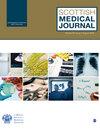Medicolegal issues in healthcare: Corporatisation of healthcare.
IF 1.4
4区 医学
Q2 MEDICINE, GENERAL & INTERNAL
引用次数: 0
Abstract
A career in Medicine is often rewarding and profession is regarded as one of the noble professions. In a professional relationship between patient and doctor, due care is rendered based on principles of sincerity, trust and mutual understanding that outcome may not be predictable in certain circumstances and things can and will go wrong. however, axiom such as “you learn from your mistakes” is not considered as learning opportunity anymore and law is brought in by the patients to decide level of negligence by the doctors, in cases where perceived errors are witnessed. The judges with no knowledge of medical science decide degree of negligence and compensation based on medical expert opinions. In Cambridge dictionary, negligence is defined as “the fact of not giving enough care or attention to someone or something”. The parameters to categorise degree of negligence are often subjective and varied between; lata culpa, gross neglect; levis culpa’ ordinary neglect and levissima culpa, slight neglect (1). The decision on the level of negligence is further dependant on the context, circumstances of individuals and systems. In a medical error, it is often assumed that things have gone wrong and somebody needs to be punished and medical practitioners are often held responsible without observing any cautions that matters are invariably complex. The decisions to pursue cases of medicolegal negligence are often based on notions that what the best practice should have been rather than exhibiting deeper understanding of real-life practices. No distinction is made between a case of occupational negligence and professional negligence. A case of negligence should not be made on the basis that better alternatives or more skilled approach was likely to adopted in a case than the one under consideration. Rather Bolam test should be applied to the matters of negligence (2). The Bolam test is “The test is the standard of the ordinary skilled man exercising and professing to have that special skill” A practitioner is not negligent as long as he has acted in accordance with practice approved by a body of other responsible doctors. There is a less recognised side effect of negligence cases pursued by litigants against doctors. The impact of “fear of failure” by medical practitioners on society need to be realised and this may be counterproductive with potential for more harm than good. A dangling fear in the mind of surgeon of failure and subsequent prosecution would prevent him from acting in the best interest of patient. Similarly, a seriously sick patient with 10% chances of survival may not get resuscitated as failure to achieve a satisfactory outcome may land a medical practitioner into a court case and the fear may prevent him from acting in the best interest of patient. In contrast to spending resources on pursuing matters of perceived negligence by society, we should be spending on prevention. Use of apology, clinical guidelines and proper documentation are some of effective methods of reducing court cases against medical practitioners. Use of these strategies may reduce chances of healthcare delivery to be another corporate activity measured in its contribution and successes in terms of losses and gains!医疗保健中的医学法律问题:医疗保健的公司化。
本文章由计算机程序翻译,如有差异,请以英文原文为准。
求助全文
约1分钟内获得全文
求助全文
来源期刊

Scottish Medical Journal
医学-医学:内科
CiteScore
4.80
自引率
3.70%
发文量
42
审稿时长
>12 weeks
期刊介绍:
A unique international information source for the latest news and issues concerning the Scottish medical community. Contributions are drawn from Scotland and its medical institutions, through an array of international authors. In addition to original papers, Scottish Medical Journal publishes commissioned educational review articles, case reports, historical articles, and sponsoring society abstracts.This journal is a member of the Committee on Publications Ethics (COPE).
 求助内容:
求助内容: 应助结果提醒方式:
应助结果提醒方式:


